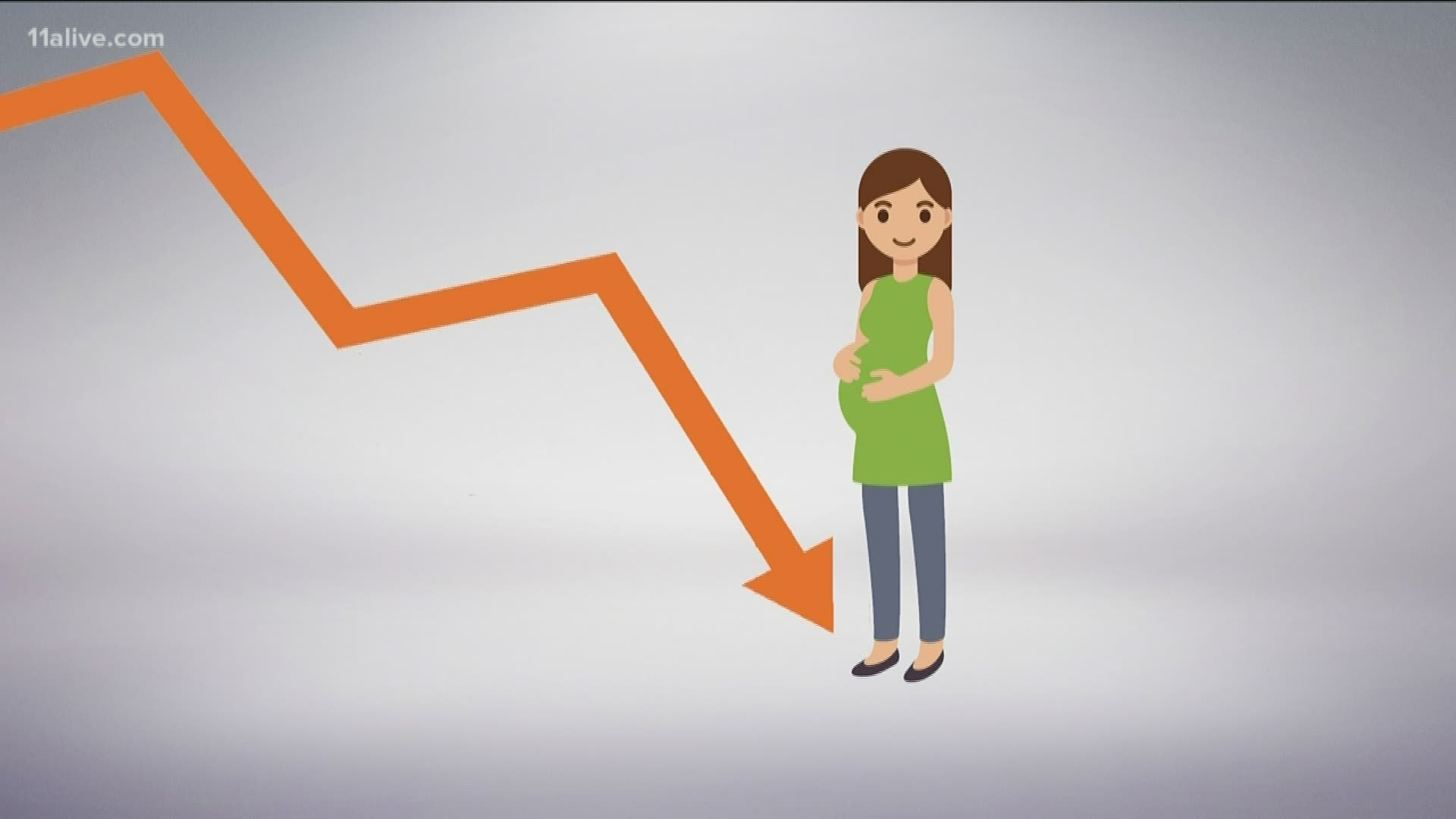The birth rate in the U.S. has declined for the fourth year in a row, hitting a "record low," according to year-end data from the Centers for Disease Control.
A report released by the CDC on Nov. 27 found 3.79 million babies were born in the U.S. in 2018, a rate of 59.1 births per 1,000 women age 15-44. This number was down 2 percent from 2017.
The birth rate remained below "replacement," which is the the amount of babies that would have to be born for a generation to exactly replace itself-- generally considered to be 2,100 births per 1,000 women. According to the CDC, the U.S. has been below replacement since 1971.
The CDC also concluded the following from its 2017 data:
Age of mother
Birth rates declined among women of all ages except women 35-44. The rate went up one percent for women age 35-39 and rose 2 percent among women age 40-44.
Mean age of mother's first birth
The mean age of mothers giving birth to their first child was 26.9 years old, a .1 percent increase from 2017.
Birth rates by states
Birth rates rose only in New York and New Jersey.
Birth rate among unmarried women
The birth rate among unmarried women dropped by 2 percent to 40.1 births per 1,000 unmarried women.
Birth rate among married women
Married women also gave birth less in 2018 than in 2017. Birth rates among this group dropped from 87.4 to 85.6 per 1,000 married women from 2017 to 2018.
Tobacco use during pregnancy
The percentage of women who smoked while pregnant in 2018 dropped by six points from 2017.
Prenatal care
The amount of women seeking prenatal care in their first trimester of pregnancy rose by .2 percent.

